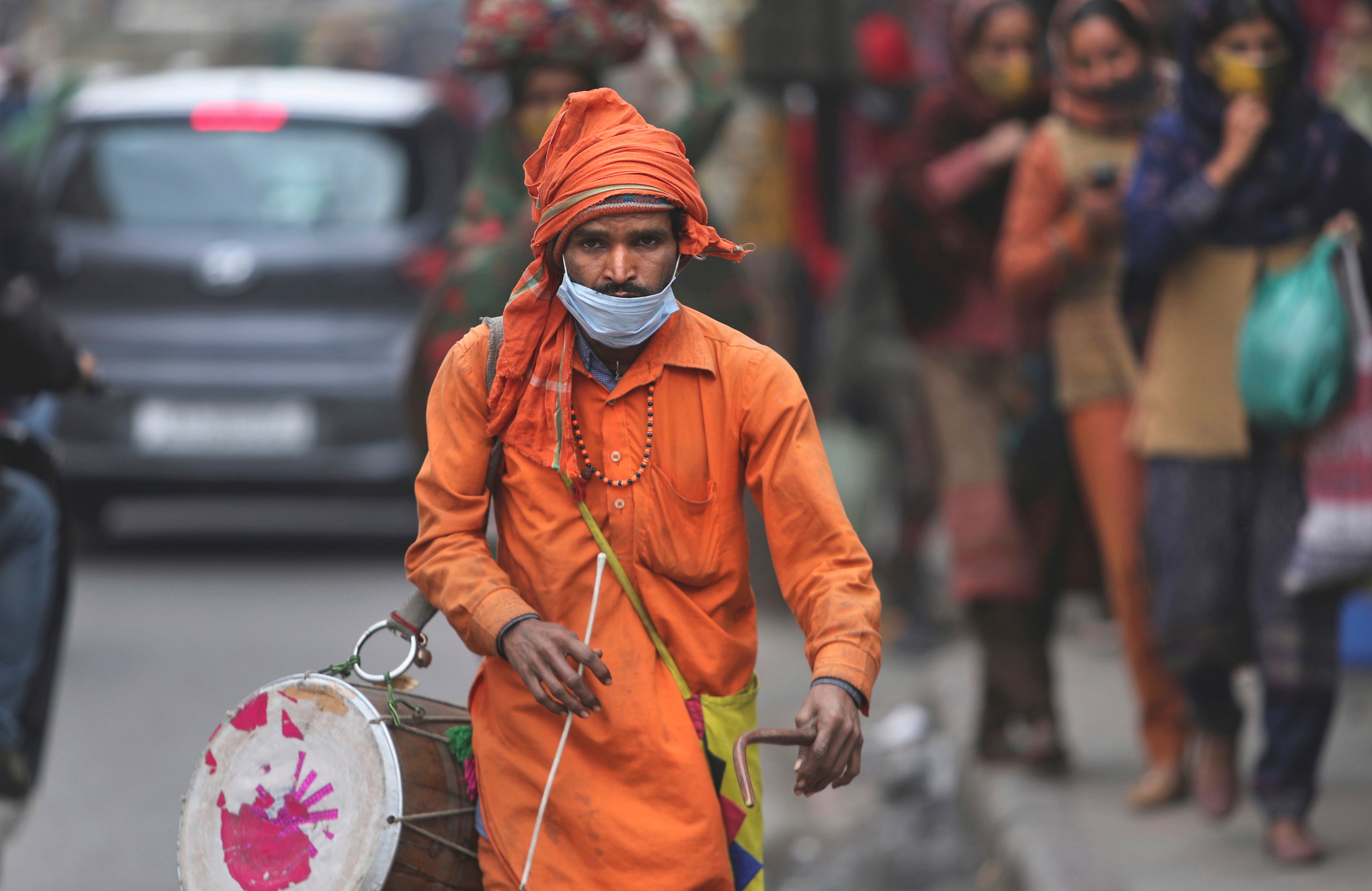AP Photos: Indian mandate means masks are all over the place

Your support helps us to tell the story
From reproductive rights to climate change to Big Tech, The Independent is on the ground when the story is developing. Whether it's investigating the financials of Elon Musk's pro-Trump PAC or producing our latest documentary, 'The A Word', which shines a light on the American women fighting for reproductive rights, we know how important it is to parse out the facts from the messaging.
At such a critical moment in US history, we need reporters on the ground. Your donation allows us to keep sending journalists to speak to both sides of the story.
The Independent is trusted by Americans across the entire political spectrum. And unlike many other quality news outlets, we choose not to lock Americans out of our reporting and analysis with paywalls. We believe quality journalism should be available to everyone, paid for by those who can afford it.
Your support makes all the difference.It’s mandatory to wear a mask in India. And police are out on the streets, watching people to make sure they are in place.
People caught without wearing a mask are fined. Some local governments, like the one in the capital New Delhi have recruited new staff to ensure the rules are followed.
But the scrutiny doesn’t extend to the type of mask that is worn, nor the safety criteria. Some people wear N95 masks, which is considered the best protection against the coronavirus, and some wear surgical masks. But more common are cloth masks — which are less effective against the ultra-contagious omicron variant. They're made of different fabrics — cotton, silk, even porous muslin.
Atul Teron, 52, said he can’t buy a mask in his village and that he’d rather tie a scarf around his face. “My traditional scarf gives more protection than the other masks,” he said.
Most people in India say they wear masks to avoid paying fines. And, consequently, masks loll on chins, hang below the nose and sometimes rest atop heads like eyeglasses.
India is averaging more than 250,000 new infections daily, with omicron driving the infections. The surge is highlighting a need for a renewed emphasis on masks and, importantly, how best to wear them.